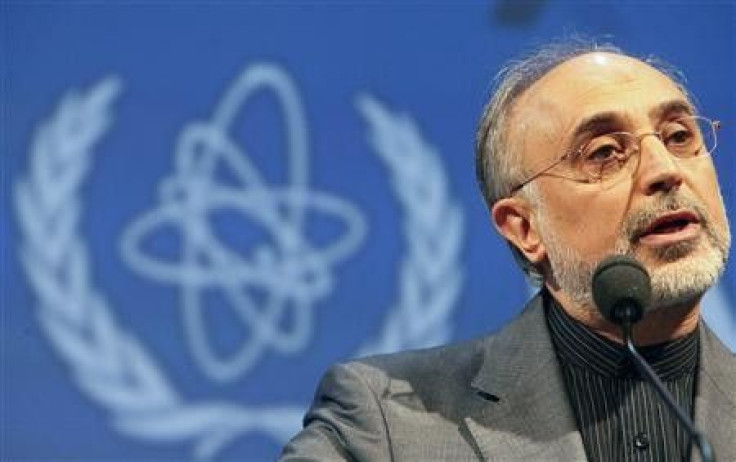U.S. Rejects Call By Iran To Ease Sanctions Ahead of Baghdad Nuclear Talks

The United States has rejected a call by Iran’s foreign minister to ease or lift sanctions against the Islamic Republic ahead of next month’s scheduled nuclear talks in Iraq between Iran and six major foreign powers.
Iran’s Foreign Minister Ali Akbar Salehi suggested the lifting of sanctions against his country could lead to a quick resolution to the Iranian nuclear matter.
No one's talking about any sanctions being reversed or canceled at all, U.S. State Department spokesman Mark Toner told reporters.
But he added: We want to see Iran come up with some concrete proposals moving forward and that if that were to happen, we would look at ways… to reciprocate.”
Toner also refuted concerns by Israeli Prime Minister Benjamin Netanyahu that the West is wasting time and allowing Iran more time to develop nuclear weapons.
We've got the strongest sanctions in history against Iran right now, and they're going to get stronger as we move into the summer, he said.
The next round of negotiations in Baghdad come on the heels of talks that took place over the weekend in Turkey between Iran and the so-called P5+1 group - the five permanent members of the United Nations Security Council (Britain, China, France, Germany, Russia and the United States) plus Germany. These were the first such talks in fifteen months and were largely described as encouraging by both sides.
“The Istanbul meeting was a turning point in the talks [between Iran and the world powers],” Salehi told the Iranian Students’ News Agency (ISNA)
Salehi also said to Press TV: “We are ready to create the conditions that can help alleviate the fabricated concerns that they [Western powers] have made up in their minds because we are sure of ourselves.
Oddly, he also said that the western nations will not be able to prevent Iran from developing nuclear energy.
“The other side [western nations] has realized Iran’s progress despite all the restrictions and pressures,” he said.
“Today, they returned to the talks; it was not us who returned to the talks as we were committed to negotiations from the start.”
© Copyright IBTimes 2024. All rights reserved.











